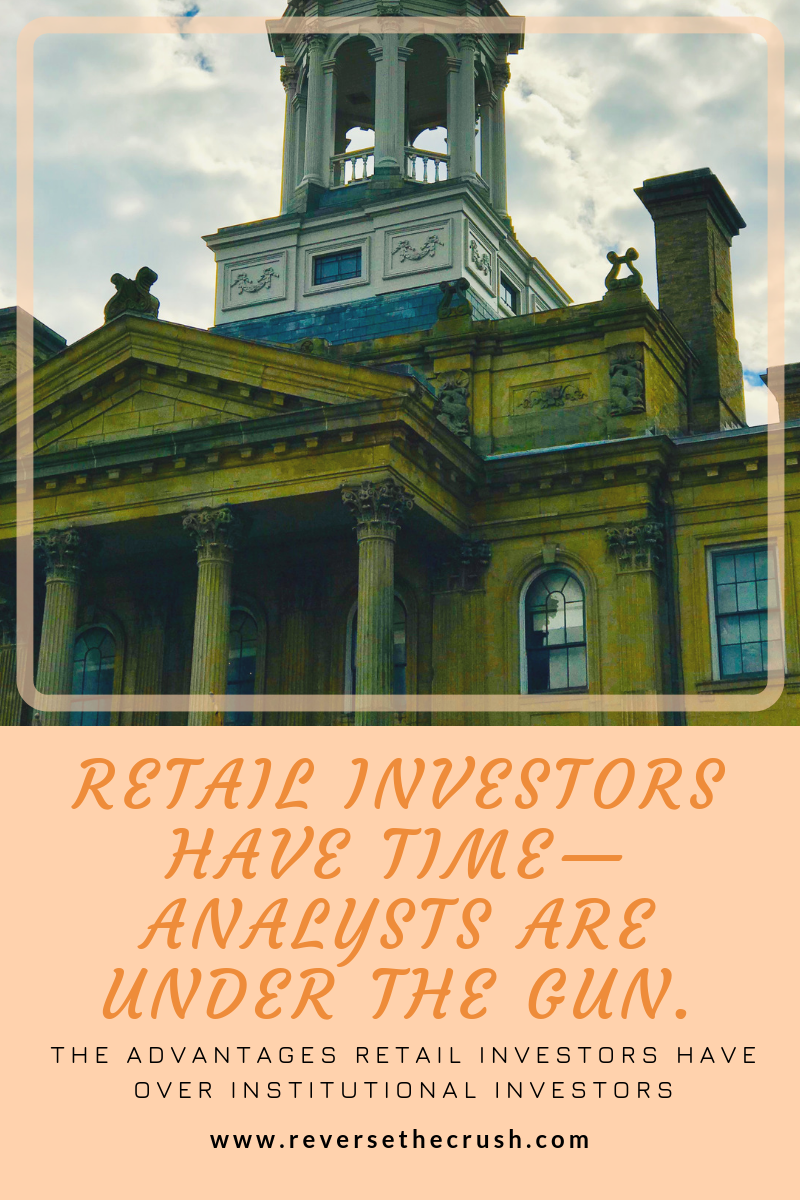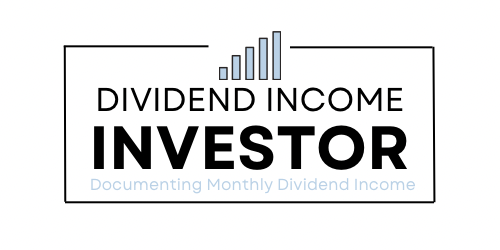Most retail investors forget about their biggest advantage over institutional investors—there is no need to earn a quarterly profit. Retail investors have the advantage of time.
Based on my observations, the media tends to place unnecessary pressure on investors by causing them to think they need to trade like professionals. They don’t, and this couldn’t be any further from the truth. There is a very big difference between managing client’s money and managing your own portfolio.
Retail investors must understand that articles, videos, and even courses on investing are just content. They are nothing more than content created by people like me to attract eyeballs or to earn a profit.
To be completely blunt with you, I actually think some courses can make investors worse at investing. It seems to cause investors to separate the stock from the business. By which I mean, they begin to focus on the numbers while not understanding the business itself.
Of course, if you have the capacity to merge the financial knowledge obtained by studying with an understanding of marketing activities and common sense, then studying is a bonus.
I am not suggesting that you shouldn’t study, nor am I implying that you should avoid listening to the media altogether. My point is that retail investors have significant advantages over institutional investors, and the advantages should be taken into context.
Retail Investors have the freedom to act like small business owners.
The most obvious advantage for retail investors is the amount of freedom they have compared to analysts.
Clients are demanding during market fluctuations, especially the type that don’t understand the market. As such, analysts have to make investment moves that provide comfort to their clients. They can’t just sign on to their online brokerage account as easily as retail investors to make a move. That would require a written report and detailed explanation first. In some cases it will require the client’s approval as well.
On the other hand, retail investors have the freedom to do whatever the hell they want. They are empowered to build their own basket of income producing equities, growth stocks, or even to day trade.
Although too much freedom can be a negative, opportunities are available to investors that put in the work and stick to a disciplined strategy.
They are not limited to a particular list of equities, nor is the retail investor under the gun to take profits quarterly like analysts. If more growth is expected over the long term, the retail investor can simply stay the course. More often than not, there is a dividend payment and share buyback plan in place. You get paid to wait for the growth, and your portion of earnings increases with every share buyback.
 Photo from Cobourg, Ontario, Canada in 2018.
Photo from Cobourg, Ontario, Canada in 2018.Retail Investors can invest as if it’s a company share plan.
It’s no secret that many publicly traded corporations offer stock sharing plans. What I don’t understand, though—is why isn’t the same strategy of dollar cost averaging applied to other stocks?
I have been fortunate enough to have a stock sharing plan at 3 different companies over my short career now, and it has been a tremendous learning experience.
For those that do not have a stock sharing plan with their employer, typically, you will receive a match of $0.50 for every dollar you contribute up until a certain point. Usually employees use plans like this to save for a home and then never invest again once they reach their goal. They go through years of dollar cost averaging but fail to learn a damn thing.
In my case, being able to participate in a stock sharing plan has been one of my biggest investment lessons yet. For example, contributing to share plans over time have caused me to realize the power of consistently paying yourself first. It’s probably the most effective way to build wealth.
Furthermore, the advantages of dollar cost averaging have become obvious as well. It has really altered my investment strategy to watch the returns add up over time, especially for dividend paying stocks.
Ultimately, retail investors can invest more passively than analysts because they have more time. They win by dollar cost averaging into high quality stocks over long periods of time to take advantage of price fluctuations.
Retail Investors Can Invest for Earnings Growth Over 10 years.
You will often hear BNN Bloomberg analysts refer to a stock as a “buy” or a “sell.” You’ll hear phrases like:
“we recommend taking quarterly profits at these prices”
While there is much to learn from analysts thoughts on equities, it’s important to keep in mind what these analysts are trying to accomplish by being on television.
From my perspective, they are trying to represent their firm and appear knowledgeable to attract new clients. Why else would a portfolio manager be on TV?
I’m sure that these analysts would have different recommendations if you asked for their feedback on a stock to hold for 10 years. But with the way that the panic driven media is set up, the interviews are tailored to encourage more views.
To sum up my thoughts on this phenomenon, listen to the media’s perspective on the market to find buying opportunities. Don’t get scared and sell because the market is down 500 points. And don’t sell just because the media claims that it’s the next recession.
While analysts will be under the gun during the next stock market correction, retail investors can find buying opportunities and invest for earnings growth over 10 years.
“And if they insist on trying to time their participation in equities, they should try to be fearful when others are greedy and greedy only when others are fearful” – Warren Buffett from the 2004 Annual Shareholder Letter.
The Greatest Advantage Retail Investors have is Time.
Of course, I must admit that I am biased towards time.
Because if you consider the purpose of this blog, I am essentially trying to buy time. I am pursuing financial independence through investing to own my time. More specifically, I plan to invest and blog full-time.
However, I do believe that time is an advantage for retail investors for two main reasons:
The retail investor has more time to focus on research that is important, and retail investors are not limited by time frames.
There are no write-ups (unless you’re a blogger), no interviews, or presentations. And if you’re an adult that avoids responsibilities like me, you might even have more time than most retail investors to spend on research.

Concluding Thoughts.
I know, I know…
My portfolio isn’t even that large yet, so who am I to claim that retail investors have advantages.
Well, I do have some experience with trading and dividend investing. Plus, I’ve been investing since 2011 and I did work in the investment industry, which required a couple certificates. That’s gotta count for something.
But more importantly, I realize the impact of a consistent savings rate over decades of time. I know where this portfolio is headed in 10 years, at least from an income perspective. Because I can predict dividend income through monthly dividend income projections.
Moreover, this is why I am suggesting that retail investors have significant advantages over institutional investors.
They are not under the gun to buy or sell a stock just because an analyst on CNBC said so. Understand that those analysts are under the gun to produce profits quarterly. Retail investors are not.
Investors: Do you think retail investors have advantages over analysts and institutional investors? Do you agree that time is an advantage? Did I miss any advantages?


 Dividend Income Update 17 | New Dividend Income Record! | October 2018
Dividend Income Update 17 | New Dividend Income Record! | October 2018
